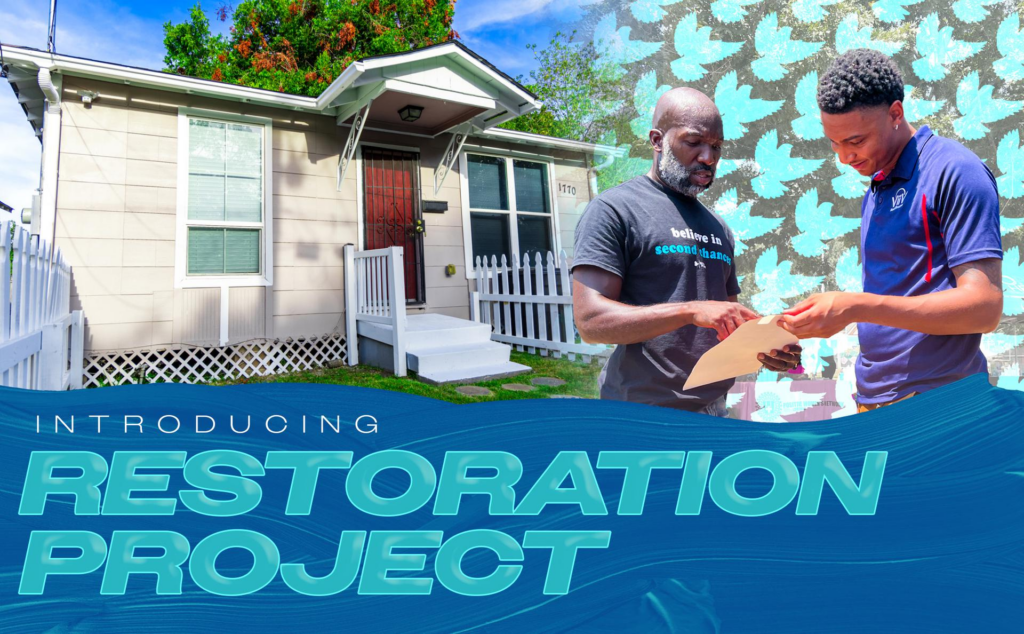
Parole Project, with funding from the Huey and Angelina Wilson Foundation, created the Restoration Project earlier this year with the dual goals of revitalizing a Baton Rouge neighborhood and clearing a path to homeownership for highly motivated, formerly incarcerated people. The aim of this initiative is to purchase at least one property each year in the neighborhood where we have decided to plant our flag. Clients selected for this project will provide community service each month in exchange for reduced rent until they are ready to become the homeowner. We believe that this community service is an opportunity for clients to integrate themselves into their new community and reinvigorate a neighborhood with much potential.
The first house, restored by Parole Project staff and clients, is now the home of Lloyd Jarrow. He is establishing himself by building a network of invested residents through service and mentorship. After moving in, he quickly began providing assistance to those around him – offering to remove old furniture and other large discarded items from the curb, tending to neighbors’ yards, and helping out in any way needed.
There is a wealth of research proving that as men and women age and mature they are highly unlikely to be involved in criminal activity. Anyone who has gotten to know Parole Project clients has seen this evidence in action. Our clients are motivated to be part of the solution.
Their experiences provide relatability to at-risk youth and other neighbors who have been impacted by the legal system. Their placement within these communities as good neighbors and prospective homeowners can also provide a catalyst for cultural change.
This is a window into Lloyd’s mission as a change agent.
Looking down the street on a summer evening, he notices a surreal silence. The neighborhood has a pulse, but it doesn’t quite feel alive. No playful banter from the kids riding bikes, no porch-to-porch conversations being shared with neighbors, no grillmasters sweating in a cloud of hickory-scented smoke.
“I grew up in situations like these. I used to think and act without caring about anyone but myself,” Lloyd said while opening his front door. “I remember being the one hurting my own neighbors. Now I want to help people around here realize that this neighborhood can be better than it is right now.”

Although he is a recent addition to the block, he saw something powerful beyond the original lukewarm impression: hope. With that hope, the project’s objective is to rekindle the dormant sense of pride in the residents of this community. Recalling a recent conversation with one of his neighbors who said, “We don’t ‘stay here.’ That implies we’re already planning to leave. We live here. This is our home.”
Lloyd’s newly refurbished home stands out. Not for having a large floorplan or an extravagant design, but for its kemptness, sense of care, and professionally-dressed tenant. In recent years, various factors have contributed to the decline of certain Baton Rouge neighborhoods. Homes rot while still housing families, children are forced to grow up too quickly, and residents have learned to tell the difference between the infrequent fireworks and recurrent ricochets from gunfights. Poverty, housing inaccessibility, and hunger are the tangible results of lost opportunity and economic divides.
Though still a new face, Lloyd has already made an impact on the lives of those around him. He spent some time studying the community, identifying unmet needs, and laying the groundwork to connect residents to needed resources. And they are buying in. By simply explaining his goals for the community, as well as his personal journey, he has seen the first rays of transformation flicker into the neighborhood.
“When I tell them about going to prison, their initial reaction is nervousness. I guess it can be shocking to have a neighbor from Angola,” he said with a soft laugh before growing a genuine grin of pride. “But then when I talk about how I changed and the work of Parole Project, they’re amazed and grateful to know that people see these kinds of issues and are trying to fix them.”

One of Lloyd’s long-term goals is to build a community garden. Recognizing that many of his neighbors are elderly and that the surrounding area is a food desert, he’s hoping to address the prevailing food insecurity. “It’s going to start small, but I think it can really benefit everyone,” he said. “Even if it just helps them save a few dollars to keep the lights on, that’s a big help.”
He is also planning to get other community members involved to give them a sense of ownership and foster collaboration among neighbors. “If we plant the seed and see it grow and benefit the community, maybe they’ll realize they can do the same,” Lloyd said. He’s hoping that once it is fully developed, the garden will be self-sustaining, with neighbors contributing to its growth and literally reaping the benefits of their work.
Addressing years of trauma, systemic issues, and a lack of commercial community investment is a monumental task, but luckily Lloyd is not alone. He has already facilitated partnerships with the local Open Health Clinic, community leaders, and other organizations to bring highly-needed services to his neighbors.
Whenever he meets a new person, Lloyd makes sure to ask what he can do to help the community. “A lot of people say that there are too many things to name just one,” he said with a pause. Then, fixing his eyes on a wall of certificates he earned while incarcerated he understood the answer. “But every redemption story has to start somewhere.”
With Lloyd, Parole Project has planted our flag in a neighborhood in need of hope. Our short-term goal is to buy a second Restoration Project house and place our next client in this program. Our long-term goal is to have dozens of clients making a difference in this neighborhood and continuing the work that Lloyd has begun.



